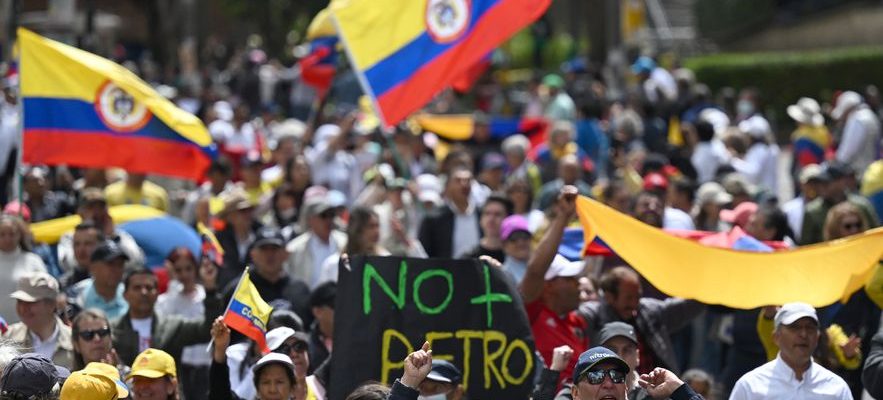Driven by a flourishing audiovisual industry, “telenovelas” are a Colombian specialty whose scenarios are invariable: low blows, deceit, money, power and, also, a touch of humor. But in recent weeks, on the small screen, reality has surpassed fiction. In August, Nicolas Petro, the son of President Gustavo Petro, admitted to a prosecutor that he had received dirty money from drug trafficking. And that part of the sum was used to finance his “dad’s” victorious electoral campaign last year.
“Nicolas Petro, 37, received large sums of money from Santa Lopesierra, aka ‘The Marlboro Man,'” the nation’s attorney general said while in the background, the son, eyes downcast, held his head with both hands. The Marlboro Man? He is a repentant narco, king of cigarette smuggling on the Caribbean coast, sentenced to twenty-five years in prison in the United States and released in 2021… before returning to service.
The accusations of Daysuris Vasquez, the ex-wife of son Petro, are the cause of his arrest. In March, the one that Nicolas had dropped for one of his best friends took revenge by swinging what she knew about her ex. SMS in support, she revealed the content of private conversations between her, Nicolas and crooked businessmen. Part of the money was used to support Nicolas’ lifestyle, with a villa, an apartment by the sea and a large Mercedes. Another would have served to fuel the electoral campaign of Gustavo Petro, the first left-wing president in the country’s history, who claims to know nothing about these financial movements.
Petro disowns his son
Combative, the latter also accuses his opponents of using “family scars, wounds that sometimes never heal” to bring him down. In March, the president had already spoken of family rifts to explain his son’s setbacks: “He grew up in Cordoba […] We never really had the opportunity to live together, he cried. The reality is that I did not raise him.” Alas for him, this melodramatic tone hardly moved the country. coordination of his campaign in the Caribbean region, which is crucial to win,” observes Carlos Arias, expert in political communication.
Demonstration against the policies of Colombian President Gustavo Petro in Bogota on June 20, 2023
© / afp.com/Raul ARBOLEDA
This scandal brings back bad memories. In 1995, President Ernesto Samper was accused of receiving money from the Cali cartel. Resounding, the affair led to the famous “Proceso 8000” which had ruined his entire presidency. His campaign director, incidentally the son of the painter Fernando Botero, then claimed that Samper knew everything. But the latter had sworn that everything had happened “behind his back”. Colombians still laugh at this famous formula. “It is impossible not to think of Trial 8000, says Andrés Hernandez, the director of the anti-corruption NGO Transparencia por Colombia. Certainly, the link between Samper and the Cali cartel was more obvious, but the political dimension of the current scandal and its impact on public opinion are similar.”
Petro’s defense – which promised to change political mores – indeed resembles Samper’s like two drops of Colombian coffee. “There is, in our country, this feeling of continually broken hope which undermines democracy,” continues Andrés Hernandez. Pedro Uribe, Juan Manuel Santos, Iván Duque: all the president’s predecessors have been accused of illegal financing.
Justice must now remove the gray areas on the source of the money and establish whether the head of state was aware of his son’s schemes. In any case, the political damage is considerable after only one year of mandate marked by the blocking of flagship reforms in Congress – laws on health, on work, etc. – and the difficult implementation of a total peace policy aimed at ensuring that armed groups definitively lay down their arms. It is an understatement to say that Petro’s first anniversary in power was spoiled by the telenovela of the moment.
